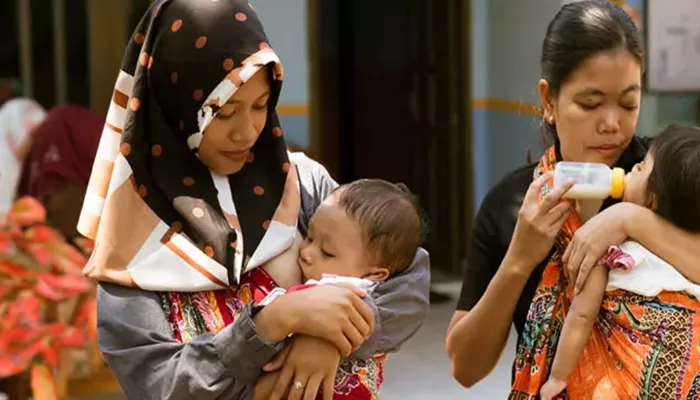Just two months into his presidency, Prabowo Subianto has fulfilled a key promise. On January 6, his government rolled out a major initiative aimed at providing free, nutritious meals to millions of schoolchildren and pregnant women across Indonesia. The program, valued at over $4 billion, is a significant step toward addressing the country’s ongoing challenges with poverty and malnutrition.
“This is a historic moment for Indonesia,” said presidential spokesperson Hasan Nasbi on January 5. “For the first time, we are implementing a national nutrition program that will benefit toddlers, students, pregnant women, and nursing mothers.”
President Prabowo made the pledge during his campaign, but some were skeptical of his ability to deliver. “When I first heard about the proposal, I thought it was just a populist move,” said Dagur, a 40-year-old Catholic journalist from Jakarta. “But I must admit, he has moved quickly and the program is addressing an urgent need in a country suffering from extreme poverty.”
Tackling Inequality and Malnutrition
The initiative targets a critical issue: stunting, which affects 21.5% of children in Indonesia, a country with a population of approximately 282 million. The government’s goal is to reduce this rate to 5% by 2045. The program, which allocates 10,000 rupiah (about 0.62 US cents) per meal, has a total budget of 71 trillion rupiah ($4.39 billion) for the 2025 fiscal year. The long-term aim is to provide meals to nearly 83 million people by 2029.
“Indonesia is rich in natural resources—gas, coal, nickel, gold—but wealth is concentrated in the hands of a few,” said Father Setyo Wibowo, a Jesuit priest who frequently travels throughout the country. “While Indonesia’s economy is growing, the gap between the rich and poor continues to widen.”
Despite being the largest economy in Southeast Asia, with a growth rate of 5.3%, Indonesia struggles with severe wealth inequality. According to the NGO Oxfam, the country ranks as the sixth-worst in terms of wealth disparity globally. In Jakarta, it’s common to see women begging on the streets, often with babies in their arms. “This is the reality for many people in Indonesia,” Father Wibowo added.
Concerns About the Program’s Effectiveness
While the program has been widely praised, there are concerns about its sustainability and impact. The government has pledged to prioritize the poorest and most isolated regions in the archipelago, but early trials have mostly been focused on urban areas. “The evaluations of these trials have not been made public,” noted Tan Shot Yen, a nutritionist and physician based in Jakarta. “I hope this is not just a temporary solution to fulfill political promises.”
Ayu, a Catholic activist involved in charitable work, expressed similar concerns. “This program is a good start, but offering just one free meal a day won’t solve the underlying issues of poverty and unemployment affecting millions of Indonesians. More needs to be done to address the country’s vast wealth inequality, which benefits only a small minority.”
As the program rolls out, many will be watching closely to see whether it can deliver lasting change for Indonesia’s most vulnerable populations.
Related Topics:


